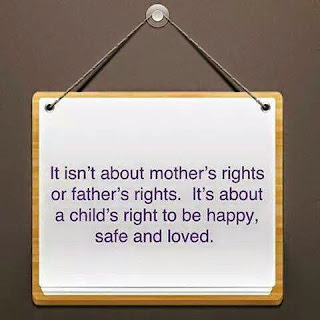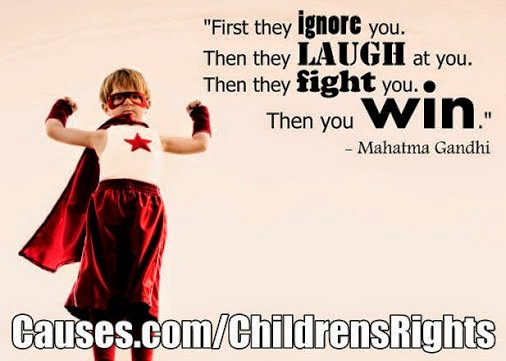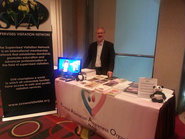The idea of
depriving children of love seems almost unthinkable to most parents. After all, love is the foundation of a child’s emotional and psychological development. It nurtures their self-worth, provides security, and helps them navigate the world with confidence. Yet, for various reasons, some parents, whether intentionally or unintentionally, deprive their children of the love and emotional connection they desperately need. This can have devastating consequences for the child’s mental health, social development, and overall well-being.
The question then arises: Why would a parent deprive their child of love, knowing that it is harmful?
The answer is complex and multifaceted, as there are many factors that can contribute to a parent’s inability or unwillingness to provide love. Let’s explore some of the reasons behind this heartbreaking phenomenon.
1. Unresolved Trauma and Emotional Baggage
One of the most common reasons why a parent may be unable to offer love is because they themselves have not experienced healthy love in their own lives. Many parents, especially those who experienced abuse or neglect as children, struggle to give love in the way their children need.
-
Emotional numbness: For parents who were emotionally neglected or abused in their own childhoods, they may not know how to express love in a healthy, nurturing way. The emotional numbness they developed as a survival mechanism can make it difficult for them to connect with their children in the way they need.
-
Generational trauma: Generational trauma is the transmission of trauma from one generation to the next. Parents who were deprived of love or faced emotional abandonment may repeat these patterns with their own children, often unknowingly. Without proper healing or self-awareness, these parents may struggle to break the cycle of neglect or emotional distance.
For these parents, the lack of love they express is not necessarily intentional, but rather a byproduct of their own unhealed wounds.
2. Mental Health Struggles and Emotional Unavailability
Mental health issues such as depression, anxiety, and personality disorders can significantly affect a parent’s ability to be emotionally present for their child. Some common mental health challenges that can lead to emotional unavailability include:
-
Depression: Parents who suffer from depression may be so overwhelmed by their own emotions that they are unable to focus on or respond to their child’s emotional needs. They might feel emotionally exhausted, numb, or disconnected, which makes it hard to provide the nurturing care a child needs.
-
Anxiety: Parents struggling with severe anxiety may focus so intensely on their own worries that they cannot offer their children the emotional support and attention they deserve. In extreme cases, anxiety can cause a parent to withdraw or become overly controlling, creating an emotionally distant or tense home environment.
-
Personality disorders: Disorders such as narcissistic personality disorder or borderline personality disorder can complicate the ability to form healthy, loving attachments. Narcissistic parents, for instance, may prioritize their own needs and desires over their child's emotional well-being, leading to neglect or emotional manipulation.
In these cases, the parent’s mental health challenges may prevent them from engaging in positive, loving interactions with their child. This doesn’t necessarily mean they don’t love their child, but their ability to express that love is severely impaired.
3. Toxic Parenting Styles and Lack of Emotional Awareness
Some parents may unintentionally deprive their children of love due to their own toxic parenting behaviors or a lack of emotional intelligence. These behaviors can arise from ignorance or a failure to recognize how their actions are affecting their child’s emotional development.
-
Authoritarian Parenting: This rigid and controlling parenting style emphasizes obedience, rules, and discipline but often lacks warmth and affection. Authoritarian parents may set high expectations without providing emotional support or love. The focus is on control rather than connection, leading to children who may feel unloved or emotionally abandoned.
-
Neglectful Parenting: Parents who are neglectful (whether emotionally or physically) may be physically present but emotionally unavailable. They fail to meet their child’s emotional needs, offering little affection, praise, or encouragement. Children raised in these environments often feel invisible or unimportant.
-
Over-controlling and critical behavior: Some parents, particularly those who were themselves raised in highly controlling environments, may impose strict rules without fostering emotional closeness. They may criticize their child’s behavior or achievements instead of nurturing them. The child, in turn, may struggle with self-esteem and feel disconnected from their parent.
While these parents may still care about their children, their parenting style is emotionally harmful and does not provide the warmth or love necessary for healthy development.
4. External Stressors and Life Circumstances
External pressures, such as financial stress, marital problems, or a demanding career, can also impact a parent’s ability to show love to their children. When parents are overwhelmed by life’s challenges, they may unintentionally withdraw or become emotionally unavailable.
-
Financial hardship: Parents who are struggling to make ends meet may be so consumed by the pressures of providing financially that they become emotionally distant. The stress of worrying about bills, job security, and other financial concerns can take a toll on a parent’s mental health, making it harder to provide the emotional connection children need.
-
Marital conflict or divorce: Parents who are experiencing marital issues, particularly those going through a divorce or separation, may become emotionally withdrawn or focused on their own needs, leaving their children feeling neglected. They may be too preoccupied with their own emotional turmoil to adequately nurture their children.
-
Work-related stress: Parents who work long hours or are constantly stressed at work may be physically present at home but emotionally unavailable. Fatigue, burnout, or job-related frustrations can drain the emotional energy a parent has to give, leading to a lack of connection with their child.
These external stressors often contribute to emotional neglect. Though the parents may still love their children, their capacity to show that love becomes limited by their own stress and struggles.
5. Intentional Neglect or Emotional Abuse
In some unfortunate cases, intentional emotional abuse or neglect may occur. This can be the result of severe anger, resentment, or toxic belief systems held by the parent. In these situations, the deprivation of love is a deliberate attempt to control, manipulate, or hurt the child. This can manifest in a range of behaviors, from verbal abuse to withholding affection as a form of punishment.
-
Parental alienation: Sometimes, one parent may intentionally try to alienate the child from the other parent, using emotional manipulation or coercion to turn the child against the other parent. This can involve not only withholding affection but also planting seeds of distrust and fear in the child.
-
Punishment by neglect: In extreme cases, a parent may consciously withhold love as a form of punishment, believing that it will make the child more obedient or compliant. This can have devastating consequences for the child’s sense of self-worth and emotional development.
In these instances, the deprivation of love is a form of abuse, and it can cause long-lasting emotional damage to the child.
So, Why Do It?
The simple answer to the question, “Why do it?” is that no parent sets out to intentionally harm their child. In many cases, parents are unaware of the damage their behavior is causing, or they may be acting out of their own unresolved pain, stress, or emotional limitations. They may not realize that their actions—or inaction—are depriving their child of the love and emotional support that is essential for healthy development.
However, regardless of the reasons behind it, depriving a child of love is indeed a form of abuse. Children need love to thrive, to develop healthy emotional connections, and to grow into emotionally stable adults. Parents must recognize the profound impact their behavior has on their children and take steps toward healing, whether it’s seeking therapy, learning about healthy emotional communication, or working to break harmful cycles of neglect.
Conclusion: The Path to Healing and Change
While there are many complex reasons why a parent might deprive a child of love, the good news is that healing is possible. Parents who recognize their own emotional struggles or toxic patterns can take proactive steps toward improvement. Therapy, self-reflection, and support systems can help parents become more emotionally available, offering their children the love and support they need to thrive.
Children, especially those who have experienced emotional neglect, can also heal through therapy, strong supportive relationships, and environments that encourage emotional expression and self-esteem.
Deprivation of love is devastating—but awareness, support, and change can help parents and children break free from cycles of emotional harm and foster healthier, more loving relationships.
Post by
Parental Alienation Awareness Organization - PAAO.
 Of course there is people who stand in the way of Progression and Changes in Culture.
Of course there is people who stand in the way of Progression and Changes in Culture.






























